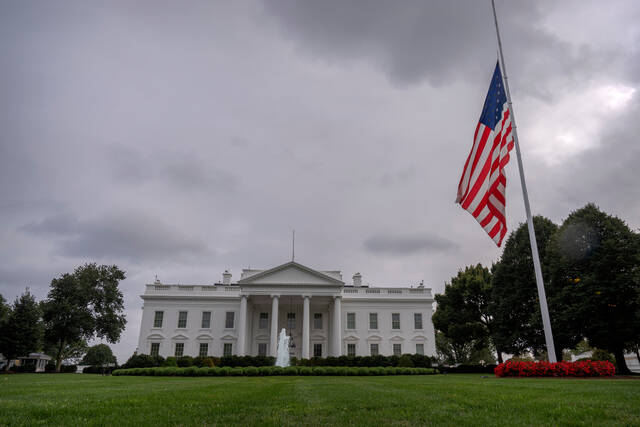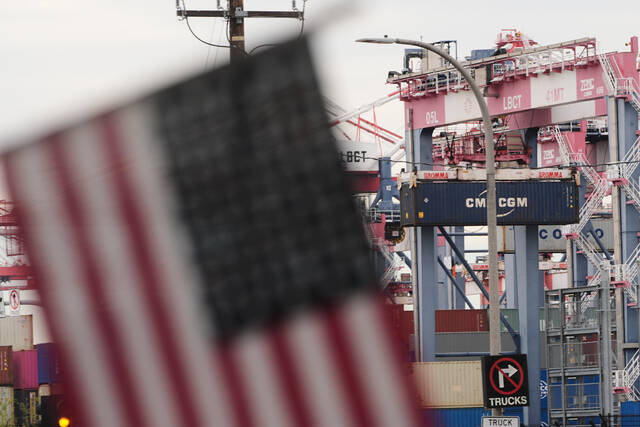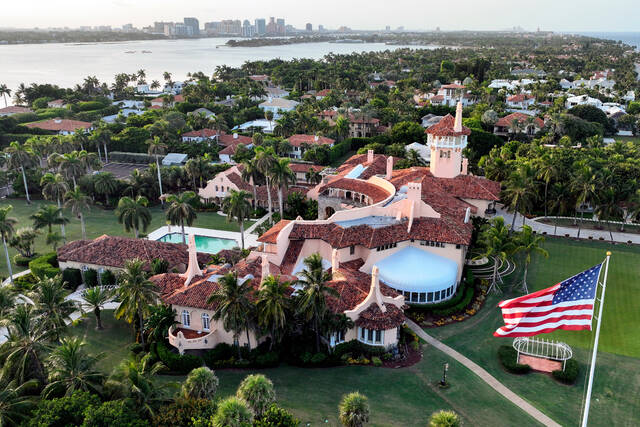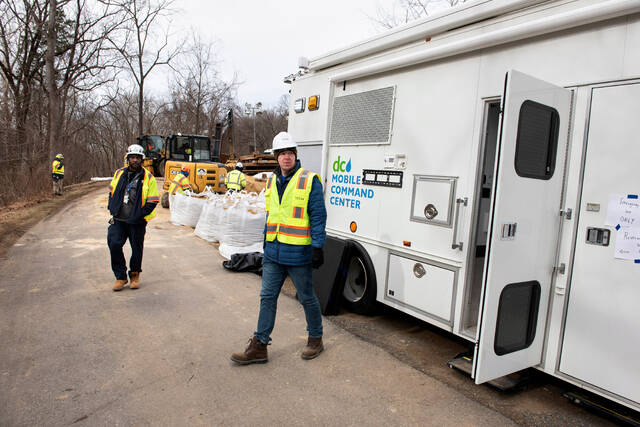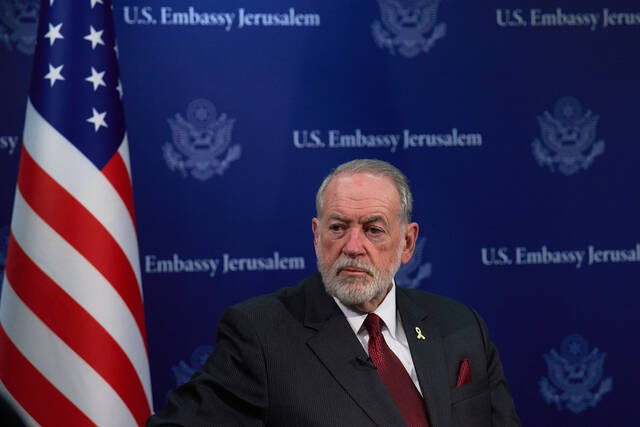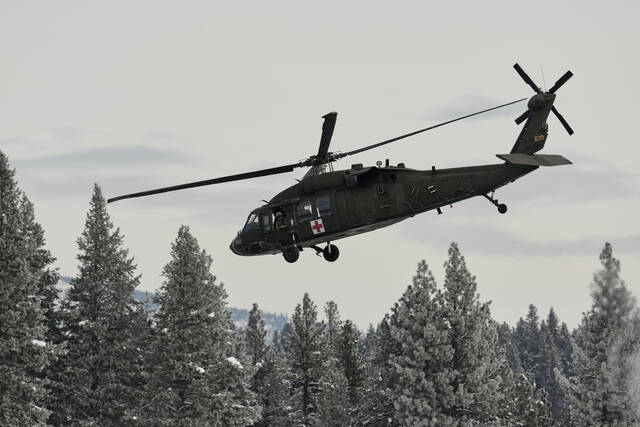Several leading authorities on political violence say they are concerned about what happens next in America following the assassination of conservative influencer Charlie Kirk.
The experts say this latest era of political violence is the nation’s worst since the turbulent 1960s. Without a unified, full-throated repudiation of the violence from politicians in both major parties and Americans in the middle majority of the electorate, experts say the nation could descend to even darker depths.
“We are in a position where this very easily could spiral into widespread and growing unrest,” said Mike Jensen, research director at the University of Maryland’s National Consortium for the Study of Terrorism and Responses to Terrorism.
“We are more radicalized as a country than we were several years ago, we’ve had more violence and now you have multiple ways the violence can escalate — and I mean in the coming weeks and months, not a year from now,” said Robert Pape Jr., a political science professor at the University of Chicago who directs the Chicago Project on Security and Threats.
“We are now at a watershed moment in the United States,” added Pape, an Erie native who earned a bachelor’s degree from the University of Pittsburgh.
Continuing political violence and inflammatory rhetoric that demonizes political opponents will have an erosive effect on democracy, the experts said.
One of the biggest challenges in dealing with the issue: Political discontent appears to be coming from all angles.
“What’s most concerning is that these incidents aren’t coming from one group or movement or ideology,” Jensen said. “They are coming from all over the political spectrum.”
Research from Jensen’s National Consortium for the Study of Terrorism and Responses to Terrorism (START) shows there were more than 150 politically motivated attacks during the first six months of this year, up from 83 during the same period a year ago.
Injuries from the attacks rose from nine in the first half of last year to 137 this year, while deaths jumped from seven to 31 year-to-year, START said.
Of the incidents of politically motivated violence, according to START:
• 32 plots and attacks were linked to antisemitism.
• 20 targeted officials carrying out immigration enforcement activities.
• 13 targeted peaceful demonstrators of the Trump administration’s policies on immigration and executive power.
• 21 targeted Republican politicians.
• 10 targeted Democratic politicians.
• 22 targeted the LGBTQ+ community.
• 7 targeted members of the Muslim community.
• 6 targeted suspected immigrants.
• 5 plots were inspired by foreign terrorist organizations.
The problem has been years in the making.
Among incidents involving political figures in the past eight years:
• Republican U.S. Rep. Steve Scalise of Louisiana was critically wounded at a practice for a congressional charity baseball game in 2017.
• Authorities thwarted a plot to kidnap Michigan Gov. Gretchen Whitmer, a Democrat, in 2020.
• Rioters stormed the U.S. Capitol on Jan. 6, 2021, to protest the 2020 election results.
• A man targeting former House Speaker Nancy Pelosi broke into her California home in 2022 and bludgeoned her husband with a hammer.
• President Donald Trump survived two assassination attempts during the 2024 campaign, including one in Butler County.
• Pennsylvania Gov. Josh Shapiro and his family were sleeping inside the governor’s residence on the first night of Passover in April when, authorities said, an intruder firebombed the home in an arson attack.
• A gunman killed Democratic Minnesota House Speaker Melissa Hortman and her husband and severely injured state Sen. John Hoffman, also a Democrat, and his wife in June.
“There has been a steady drumbeat of politically violent attacks. There is no quick, easy fix by any stretch,” said Matt Dallek, a political scientist at George Washington University in Washington.
Equally concerning, Pape said, is the acceptance of political violence by a growing number of people.
Pape said his Chicago Project on Security and Threats has conducted quarterly national surveys on political violence since 2021. One done in May showed that about 40% of Democrats said they supported the use of force to remove Trump from the presidency, while 25% of Republicans supported using the military to stop protests against Trump’s agenda.
On the other hand, Pape said, “70% — sometimes even higher than 70% — of the public abhors political violence. There are the radical edges on both sides that are supporting political violence, and unfortunately those radical edges are widening.
“That middle (70%) can actually themselves start to put pressure on the radical edges. … You lean into the middle, and it’s the middle that does a lot of the work,” Pape said.
“There’s always going to be people on the fringes that you’re not going to win back,” Jensen added. “Many of their sentiments are not relegated to the dark places of the internet anymore. They’ve seeped more into the middle, and it hits you right in the face when you go on social media. We need to be talking to the middle.”
The internet — in particular, social media — presents another challenge, the experts said.
“Social media is at the heart of our accelerating polarization. It’s a giant hate machine that allows the equivalent of modern-day stonings,” said Tom Ginsburg, a professor at the University of Chicago who heads the Forum for Free Expression and Inquiry. “It just adds fuel to the fire.”
“The divisions in this country predate social media, but social media acts as an accelerant and exacerbates those divisions,” Dallek added. “It’s harder to come to an accepted set of facts and have a conversation that a healthy democracy would have. It actually worsens the country’s anger and calls for revenge instead of tamping those things down.”
Among the experts’ recommendations to reverse the trend of political violence, Pape encourages politicians to do more condemn the violence and responses to it that either celebrate violence or call for violent retribution. He said doing so through joint statements, events and initiatives with members of the other major party could carry more weight.
“Since this is fundamentally a political problem, politicians have to be a big part of the solution,” Pape said.


